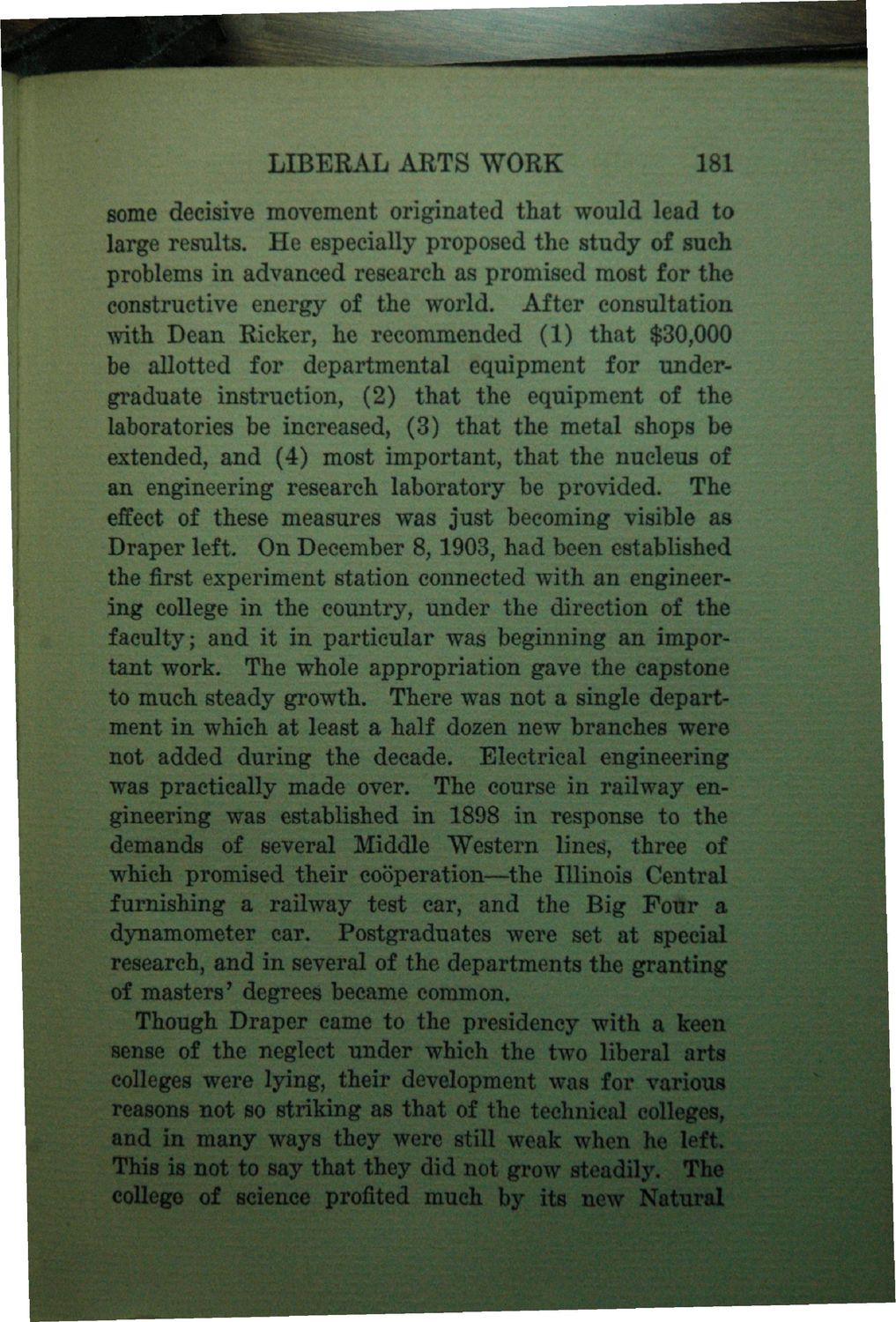| |
| |
Caption: Book - History of the University (Nevins)
This is a reduced-resolution page image for fast online browsing.

EXTRACTED TEXT FROM PAGE:
LIBERAL ARTS WORK 181 some decisive movement originated that would lead to large results. He especially proposed the study of such problems in advanced research as promised most for the constructive energy of the world. After consultation with Dean Bicker, he recommended (1) that $30,000 be allotted for departmental equipment for undergraduate instruction, (2) that the equipment of the laboratories be increased, (3) that the metal shops be extended, and (4) most important, that the nucleus of an engineering research laboratory be provided. The effect of these measures was just becoming visible as Draper left. On December 8,1903, had been established the first experiment station connected with an engineering college in the country, under the direction of the faculty; and it in particular was beginning an important work. The whole appropriation gave the capstone to much steady growth. There was not a single department in which at least a half dozen new branches were not added during the decade. ^Electrical engineering was practically made over. The course in railway engineering was established in 1898 in response to the demands of several Middle Western lines, three of which promised their cooperation—the Illinois Central furnishing a railway test car, and the Big Pour a dynamometer car. Postgraduates were set at special research, and in several of the departments the granting of mastersjj degrees became common. Though Draper came to the presidency with a keen sense of the neglect under which the two liberal arts colleges were lying, their development was for various reasons not so striking as that of the technical colleges, and in many ways they were still weak when he left. This is not to say that they did not grow steadU$l; The college of science profited much by its new Natural
| |